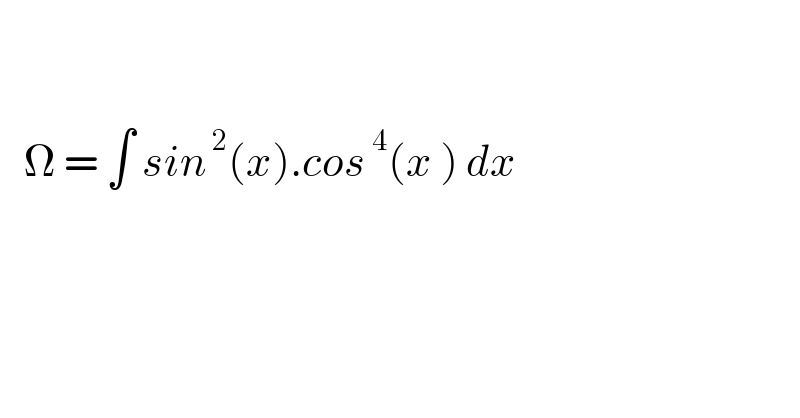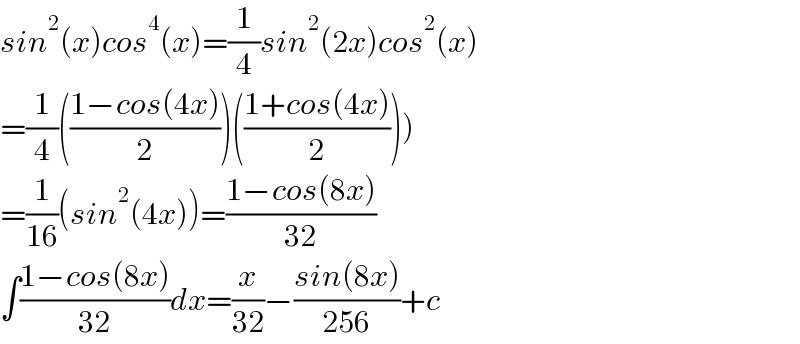
Question and Answers Forum
Question Number 162804 by mnjuly1970 last updated on 01/Jan/22

Answered by mindispower last updated on 01/Jan/22

Commented by tounghoungko last updated on 02/Jan/22

Answered by john_santu last updated on 01/Jan/22
![Ω = (1/4)∫ sin^2 2x cos^2 x dx Ω = (1/(16))∫ (2sin 2x cos x)^2 dx Ω= (1/(16))∫ (sin 3x +sin x)^2 dx Ω=(1/(16))∫ [ ((1−cos 6x+1−cos 2x)/2)+2sin 3x sin x ]dx Ω =(1/(32)) (2x−(1/6)sin 6x−(1/2)sin 2x)−(1/(16))∫(cos 4x−cos 2x)dx Ω=(x/(16))−((sin 6x)/(192))−((sin 2x)/(64))−((sin 4x)/(64))+((sin 2x)/(32)) +c Ω= (x/(16))−((sin 6x)/(192))+((sin 2x)/(64))−((sin 4x)/(64))+ c](Q162808.png)
| ||
Question and Answers Forum | ||
Question Number 162804 by mnjuly1970 last updated on 01/Jan/22 | ||
 | ||
Answered by mindispower last updated on 01/Jan/22 | ||
 | ||
| ||
Commented by tounghoungko last updated on 02/Jan/22 | ||
 | ||
Answered by john_santu last updated on 01/Jan/22 | ||
![Ω = (1/4)∫ sin^2 2x cos^2 x dx Ω = (1/(16))∫ (2sin 2x cos x)^2 dx Ω= (1/(16))∫ (sin 3x +sin x)^2 dx Ω=(1/(16))∫ [ ((1−cos 6x+1−cos 2x)/2)+2sin 3x sin x ]dx Ω =(1/(32)) (2x−(1/6)sin 6x−(1/2)sin 2x)−(1/(16))∫(cos 4x−cos 2x)dx Ω=(x/(16))−((sin 6x)/(192))−((sin 2x)/(64))−((sin 4x)/(64))+((sin 2x)/(32)) +c Ω= (x/(16))−((sin 6x)/(192))+((sin 2x)/(64))−((sin 4x)/(64))+ c](Q162808.png) | ||
| ||